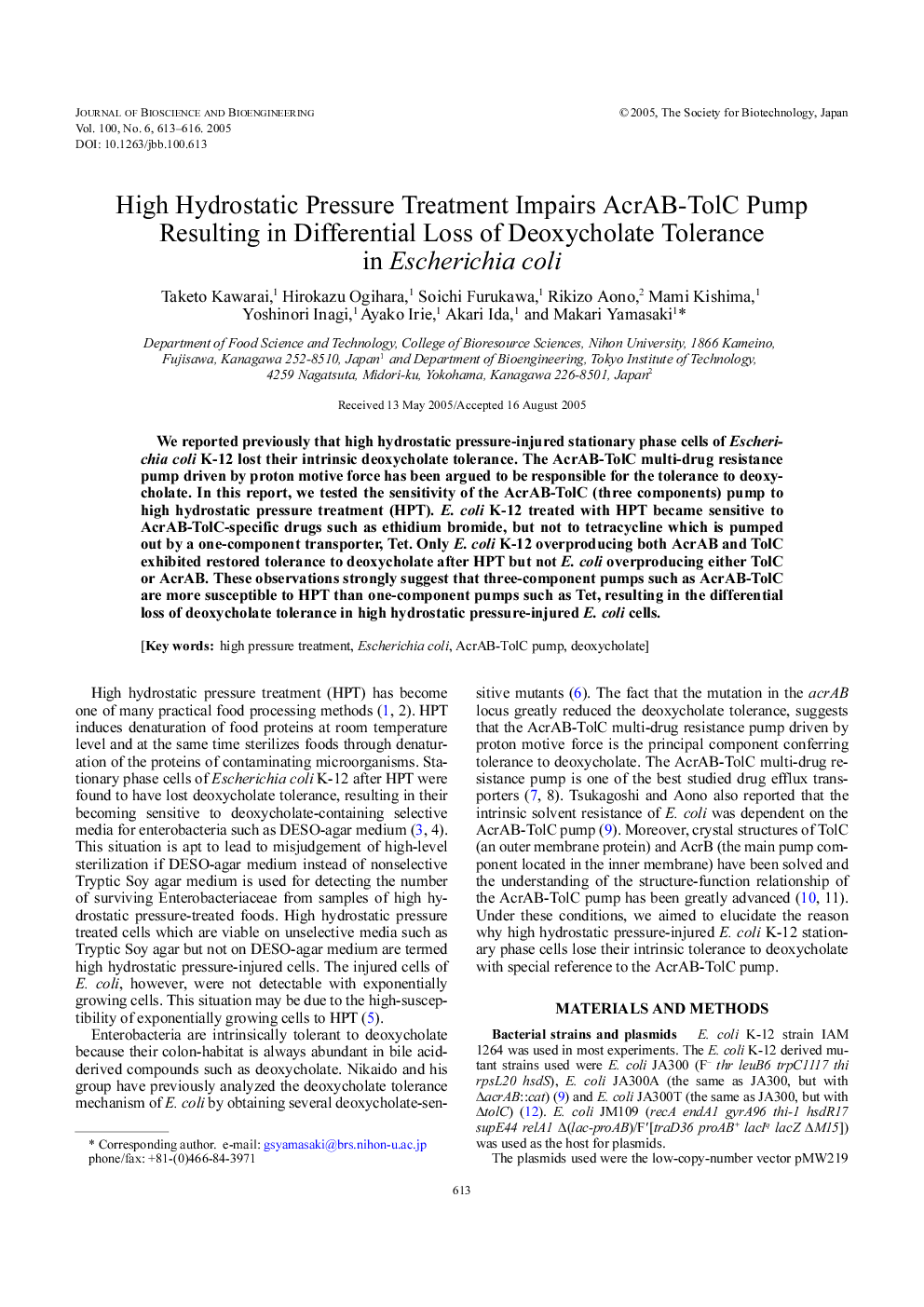| Article ID | Journal | Published Year | Pages | File Type |
|---|---|---|---|---|
| 9603088 | Journal of Bioscience and Bioengineering | 2005 | 4 Pages |
Abstract
We reported previously that high hydrostatic pressure-injured stationary phase cells of Escherichia coli K-12 lost their intrinsic deoxycholate tolerance. The AcrAB-TolC multi-drug resistance pump driven by proton motive force has been argued to be responsible for the tolerance to deoxycholate. In this report, we tested the sensitivity of the AcrAB-TolC (three components) pump to high hydrostatic pressure treatment (HPT). E. coli K-12 treated with HPT became sensitive to AcrAB-TolC-specific drugs such as ethidium bromide, but not to tetracycline which is pumped out by a one-component transporter, Tet. Only E. coli K-12 overproducing both AcrAB and TolC exhibited restored tolerance to deoxycholate after HPT but not E. coli overproducing either TolC or AcrAB. These observations strongly suggest that three-component pumps such as AcrAB-TolC are more susceptible to HPT than one-component pumps such as Tet, resulting in the differential loss of deoxycholate tolerance in high hydrostatic pressure-injured E. coli cells.
Related Topics
Physical Sciences and Engineering
Chemical Engineering
Bioengineering
Authors
Taketo Kawarai, Hirokazu Ogihara, Soichi Furukawa, Rikizo Aono, Mami Kishima, Yoshinori Inagi, Ayako Irie, Akari Ida, Makari Yamasaki,
